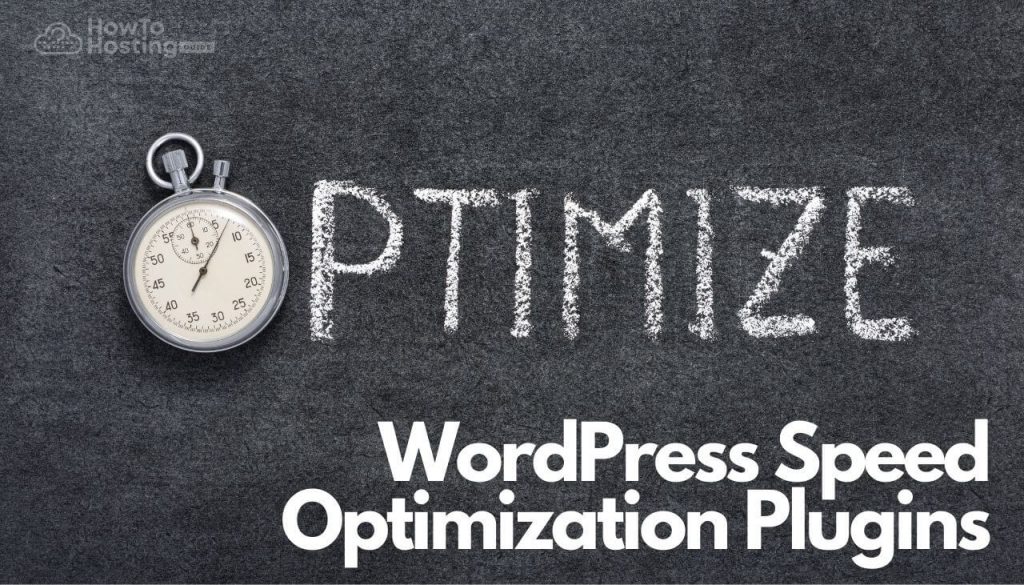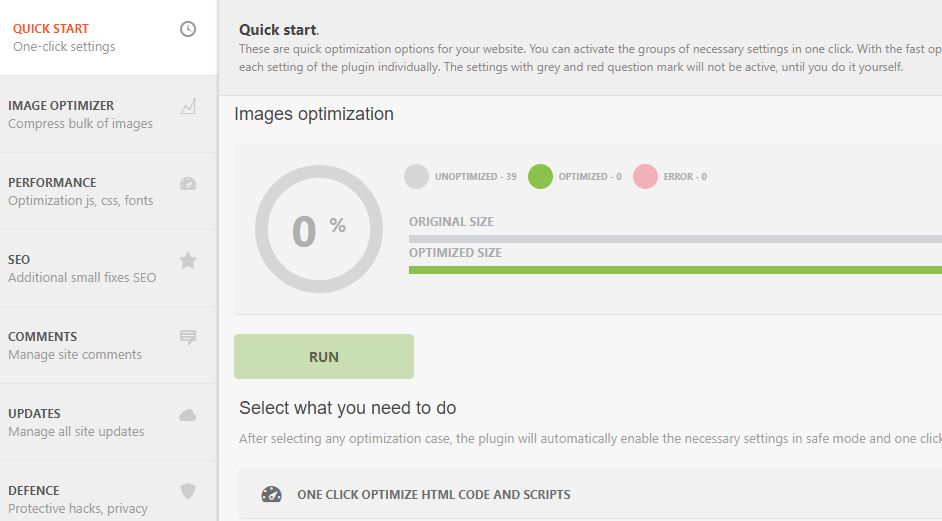On This Page: [hide]

WordPress as one of the most popular platforms for site-building can be enhanced with various speed optimization plugins.
They build upon the code base and integrate various features and technologies in order to speed up the browsing experience.
There are many different ways through which this can be done. This article gives a detailed overview of popular extensions and how they can be integrated into the sites.
Why Speed Is Important
WordPress as a popular blogging engine can be used to power both small personal sites to large-scale company pages.
Depending on the type of site and presented contents the WordPress sites can have their overall speed and performance boosted using different optimization methods.
To a large extent, the used technologies may boost different building components of the site, among the most important ones are the following:
- WordPress Core Files — The plugins and extensions can modify essential settings in the WordPress configuration files and user options. This will lead to changed behavior in how the core system operates thus leading to speed improvements.
- Database — The contents and blog engine relies on a database server to store the essential information.
When the sites become large the tables increase in both quantity and size — the servers that host the databases may become significantly slow due to the number of requests and operations it needs to do.
Database optimization is usually done by deleting unused tables (cleaning up).
- Content — The shown content can be processed by the WordPress speed optimization plugins.
This is done by compressing images and carrying out various actions on the assets which are used in site building — fonts, images, videos and etc.
- Content Delivery Network Support — The contents, images and assets can be transferred to a content delivery network.
This will replicate the site onto a network of servers on a specially designed network. In theory, this should load faster as the servers will be dynamically selected based on the closest location to the visitor.
- Local Hosting Of Certain Assets — By default certain type of content is loaded from third-party sites. If they are hosted locally on the server which provides the sites the overall speed will increase.
This is especially true when it comes to fonts.
Best WordPress Speed Optimization Plugins
WP-Rocket
WP-Rocket is among the most popular choices when it comes to selecting a caching plugin.
It is used by a lot of personal sites down to large corporate portals. It is a premium (paid) plugin which is considered one of the best in its categories.
The reason why it’s so popular is that it includes a lot of features and advanced functionality. Its main goal is to optimize the performance of the sites by caching the assets and contents using special algorithms.
It can also clean up the databases, host the Google Analytics engine locally, and also the included web fonts. WP-Rocket may also be used to achieve content delivery network integration with popular services.
Learn more about the plugin in our WP-Rocket review
WP Speed of Light
WP Speed of Light Plugin is a speed optimization tool for WordPress as you can judge from its name.
It carries loads of powerful features, as a database cleanup system, access optimization, and an auto cache cleaner to list a few.
WP Speed of Light also incorporates tests to determine why your site may be operating slowly. Tests are a speed loading test, a comparison test, and one for database queries.
In other words, WP Speed of Light will help you load every aspect of your website much faster free of charge. You can also pay for a Pro add-on if you want additional help with a custom Support option.
Learn more about the plugin in our WP Speed of Light review
WordPress Database Optimization Plugins
Database optimization is among the most effective measures that a WordPress site owner can take to speed up their installations.
Extensions like WP-Optimize can be used to remove unnecessary values and tables that slow down the blogs.
Common examples include trash posts, SPAM comments, post revisions, and various junk files. When run at certain intervals (twice a month for example) the site will load faster.
The plugin developers state that depending on the individual settings the following options and features can be disabled:
RSS feeds, ReST APIs, emojis, jQuery migrate, embeds, DNS-prefetch, wlwmanifest Link, short links, Previous/Next Post Link in HEAD, .recentcomments Styles, HTML compression and invalid and malicious characters.
WordPress Image Optimization Plugins
WordPress administrators can also install a plugin that will automatically optimize uploaded images. This is done by applying lossless compression that will not degrade quality as much as lossy ones. Another method is to set up a plugin that will automatically scale the images to preset dimensions.
The images can also have their EXIF metadata removed. A popular plugin which is used by WordPress owners is called ShortPixel, a preferred extension by many users.
According to many experts optimized images will boost the speed and performance of the sites and also increase SEO ranking thereby improving the visibility in search engines.

WordPress Core Optimization
Plugins such as Clearfy can be installed which will disable features that may not be used by the users. This extension is also advertised as clearing the website.
To a large extent, the optimization of WordPress’s security will also have a positive impact on the overall speed. This involves the disabling of the XML-RPC functionality, pingback links, login pages, and certain error messages.
Another speed optimization strategy is to selectively disable plugins from certain pages and posts.
This will improve the load time of the pages and will lower the number of server requests which are issued by the web browsers of the visitors.
This can be done both for theme elements and user-installed plugins which may not be needed — snippets, sliders, social sharing plugins at certain positions and etc.
A good example of specialized plugin is Asset Cleanup.
The loading of videos can be also optimized — one of the best examples is when the users want to embed a YouTube link.
Instead of playing the videos right away a plugin (like WP YouTube Lyte) can be installed which will only start the video when the users click on them.
Gravatar images can be cached — this will improve the performance of posts especially when longer comments are posted. An example plugin that can add this function is called Harrys Gravatar Cache.
Mobile pages can be accelerated by adding in the Accelerated mobile pages which are often shortened to “AMP”. This will add a stamp to the mobile snippets. The AMP pages will change the layout and design of the pages which will increase the loading speed. This function can be enabled by the use of a WordPress extension called AMP for WP.
WordPress administrators can look up the performance of the plugins by using Query Monitor — this is a very efficient developer tool.
When enabled it will allow the site owners to debug database queries, errors in the PHP processing, hooks, actions, and the way the system works.









